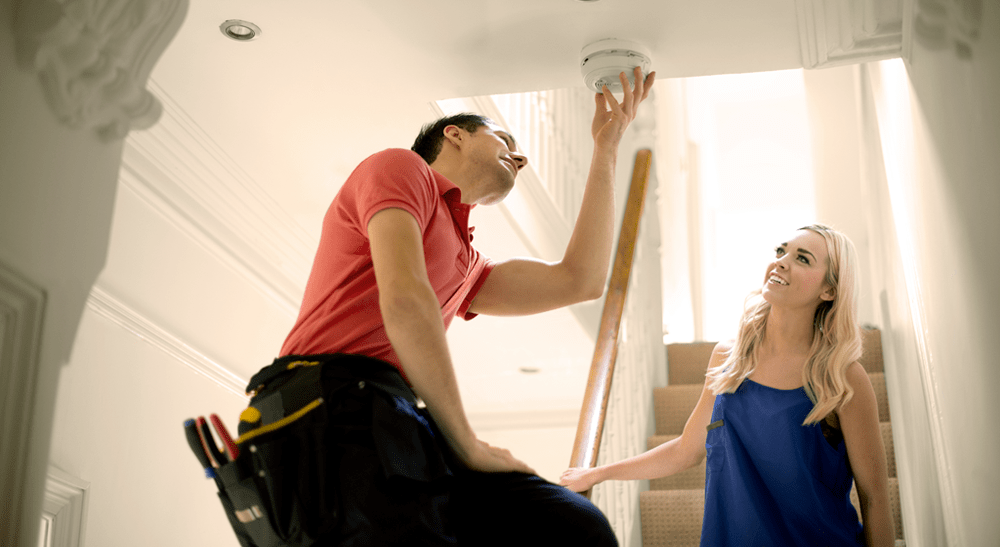There are numerous actions you can take to keep your family and home safe from the dangers and damages of fire. We have five recommendations for you to consider today.
- Detect and protect: Install smoke detectors on every floor of your home. Test them every month and replace batteries annually. The United States Fire Administration says working smoke detectors double the chances of surviving a fire. Also consider a fire alarm system that alerts the fire department when activated or sprinkler system. All of these can help save lives and money.
- Location, location, location: When buying or building a home, consider whether it's located in the proximity of a fire hydrant or other qualified water source and a fire department. This helps extinguish fires faster and lowers homeowners insurance premiums.
- Check your wiring: In homes 25 years or older, have a professional check the electrical wiring and make sure it's capable of handling the electrical voltage used in the home. Many older homes contain fuse systems designed to handle less voltage. Updating electrical wiring to a circuit breaker with at least 100-ampere service can reduce the chance of a fire and lower insurance premiums, too.
- Keep the campfire outside: Temperatures in a wood-burning stove can reach 2,000 degrees Fahrenheit. Because of the increased fire and injury risks, many insurance companies charge higher premiums for homes with wood-burning stoves. Dispose of ashes properly in a galvanized metal can. Keep the can away from flammable materials, including your house, wood pile, weeds, etc., until they are completely extinguished.
- Home construction considerations: Homes with exterior walls, floors and roofs made out of fire-resistive materials, such as brick, adobe, concrete or tile, decrease the fire risk and may cost less to insure.
